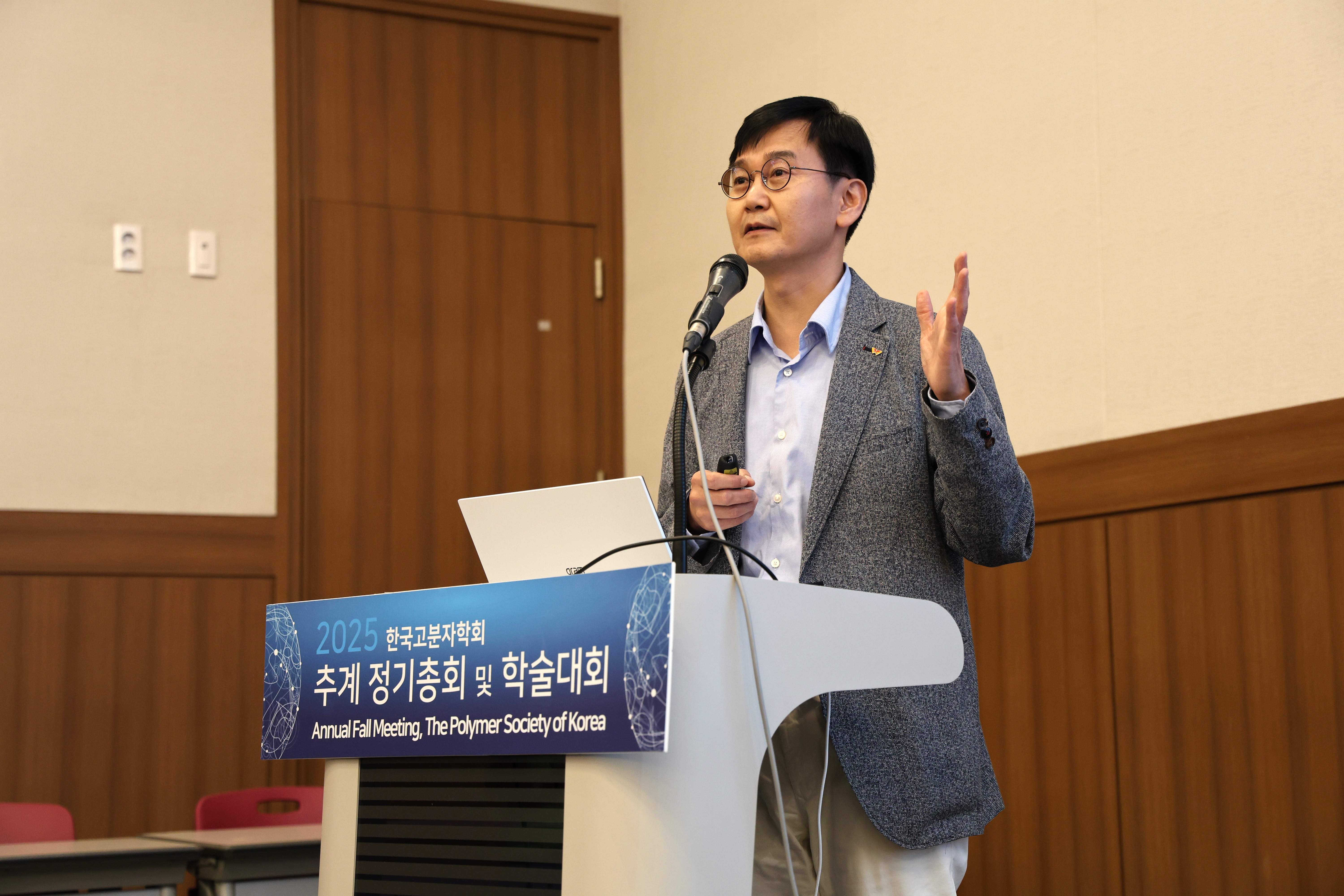- Hosts a special session on “Recyclable, Recycled, and Renewable”
- Showcases a comprehensive suite of technologies for circularity and plastics recycling
SK Chemicals shared resource circularity and recycling technologies designed to reduce carbon emissions.
SK Chemicals (CEO: Ahn Jae-hyun) announced on October 2 that it had participated in the Polymer Society of Korea Annual Fall Meeting, held at BEXCO (Busan Exhibition and Convention Center) from September 29 to October 1, at which it hosted a special session on recycling and bio-based materials.
The Polymer Society of Korea Annual Fall Meeting brings together experts from academia, industry, and research institutes to discuss polymer science and engineering in depth, covering a range of topics from fundamentals to applications and commercialization. This year’s meeting drew over 2,400 participants, including representatives from more than 70 companies and research institutes, as well as 72 universities.
At the meeting, SK Chemicals hosted a special session titled “A New Paradigm for Plastics: Recyclable, Recycled, and Renewable,” where the company shared its experience and vision for resource circularity and plastics recycling.
The program covered nine topics, including regulatory trends in plastics recycling; PET recycling solutions enabled by SK Chemicals’ circular recycling technology; conversion of waste plastics into feedstock (r-BHET); Textile-to-Textile (T2T) fiber recycling; development of copolyesters using chemical recycling technologies; and the production of TPA and PBT via chemical recycling, collectively presenting a comprehensive suite of SK Chemicals’ technical solutions for a sustainable future.
Unlike mechanical recycling, which relies on physical reprocessing, chemical recycling requires advanced chemistry to depolymerize polymer chains and convert them back into feedstock. In particular, Textile-to-Textile (T2T) recycling, which converts mixed-material waste plastics such as textiles back into fibers, entails high technical complexity, making large-scale commercialization difficult.
Grounded in pretreatment and depolymerization technologies capable of handling complex recycling processes from end to end, SK Chemicals is building a comprehensive suite of solutions and technical expertise that includes feedstock preparation for colored, composite, and textile waste, as well as material production and application development based on depolymerized feedstocks.
Kim Han-seok, Head of SK Chemicals’ Research Institute, said, “Through this meeting, we were able to share SK Chemicals’ recycling technologies with academia and industry and to confirm the potential for collaboration toward a sustainable future. By continuing to engage with the academic community, we will further advance our technologies and, through ongoing innovation, elevate Korea’s capabilities in recycled-material technologies.”

[Photo caption: SK Chemicals hosted a special session on recycling at the Polymer Society of Korea Annual Fall Meeting, held at BEXCO in Busan from September 29 to October 1. Kim Han-seok, Head of SK Chemicals’ Research Institute, is pictured leading the session.]